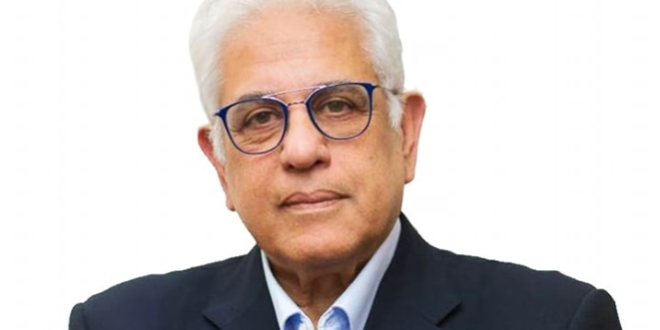About Hossam Badrawi, I say….
Written by Dr. Khaled Fathi
from Morocco
I can say, without much risk, that for the first time I have encountered an Arab politician who addresses topics that are unconventional and atypical of those that politicians usually address, thorny scientific topics that he presents to public opinion to revive it and make it recognize and discuss the problems of the era that differ radically from the topics the speaker is familiar with. The ancient times that fundamentalists bring up.
He was helped in this by the fact that he brought together the scientist, the doctor, the professor, the technocrat, the politician, the intellectual, and the philosopher, which is the combination and complexity of personality traits that we need in the current era in order to combat the challenges and dangers that surround the current human being from all sides. I had listened to Dr. Badrawi in one of his television interviews, and he was complaining about his many interests that prevented him from concentrating and creating to the fullest extent in one field. However, even though I felt what he was suffering, because I also experienced a little of this feeling, as it is certain that the politician… The doctor was unfair to him, and the doctor obstructed the politician in him, and even every aspect of his personality oppressed the other aspects. However, I see that encyclopedism and comprehensiveness in thought is what we lack today in a world of extreme overlap and connection between fields and specializations.
Therefore, we see that he does not refrain from engaging in the most controversial and controversial topics, such as the theory of evolution between science and religions. He has the intellectual equipment and scientific legitimacy for that, but with a conciliatory approach and solid logic, considering that the collective mind develops and its knowledge accumulates, and therefore there must be a diligent reading of the texts in light of scientific data. The current truth is not the opposite of truth, as Ibn Rushd stated. This is how Hussam Al-Badrawi works with his analytical scalpel in everything. He starts from science first, then presents his conclusion to the text, and does not lack a textual interpretation of what science has arrived at. He points out that some of the interpretations that may have been announced in the past by clerics were adopted based on linguistic analysis, which in his view does not amount to a scientific interpretation resulting from the application of reason. He does not deny the necessity of believing in the texts, nor does he deny their sanctity. Rather, he wants to cover them with a scientific cover. You may agree with him or you may not agree, but you feel and acknowledge his relevance and scientific and interpretive rigor. In all of this, he only presents his idea, and does not force you to embrace it. Rather, he wants to push you to reflect in your turn, urging you to think. How wonderful he is as he explains in his simple, simple style the most complex of Einstein’s theories about the relationship of size to speed, and how if a body moves at the speed of light, its quantum existence ceases to exist, or he explains what has come to be called the nanometer, which is the millionth of a millimeter, and the picometer, which is the smallest thousand. Once a nanometer, and how this tiny spatial unit led to the exploration of the femtosecond, which represents a million billionths of a second. Hossam El Badrawy takes you through the most complex, novel and strange modern theories, which are supposed to change our vision of the world. He smoothly explains and summarizes quantum mechanics, which makes it clear that the physical property and the wave property are one and the same thing, as the body is matter and sometimes a wave. Then he draws your attention to the fact that these scientific discoveries have an intellectual and philosophical content that refers us directly to the concept of dual existence, which in turn refers to the dual truth of Ibn Rushd.
There is not one universe, but rather multiple, interconnected universes, and each universe has its own laws, meaning that one space may be occupied by more than one body, but from different worlds. In scientific language that is closer to poetry or to Sufism, Hossam Badrawi shows us how the universe is nothing but a musical instrument and that it behaves in the manner of playing strings. Then he links all these scientific conquests to the word “be” and “it is,” considering that God Almighty is able to change the universe by changing the tone only. Everything changes, including creation.
Without a doubt, he is an exceptional and unique man in our world.

 Hossam Badrawi Official Website
Hossam Badrawi Official Website

